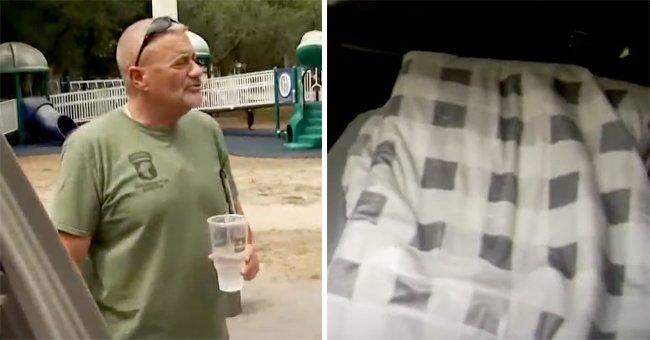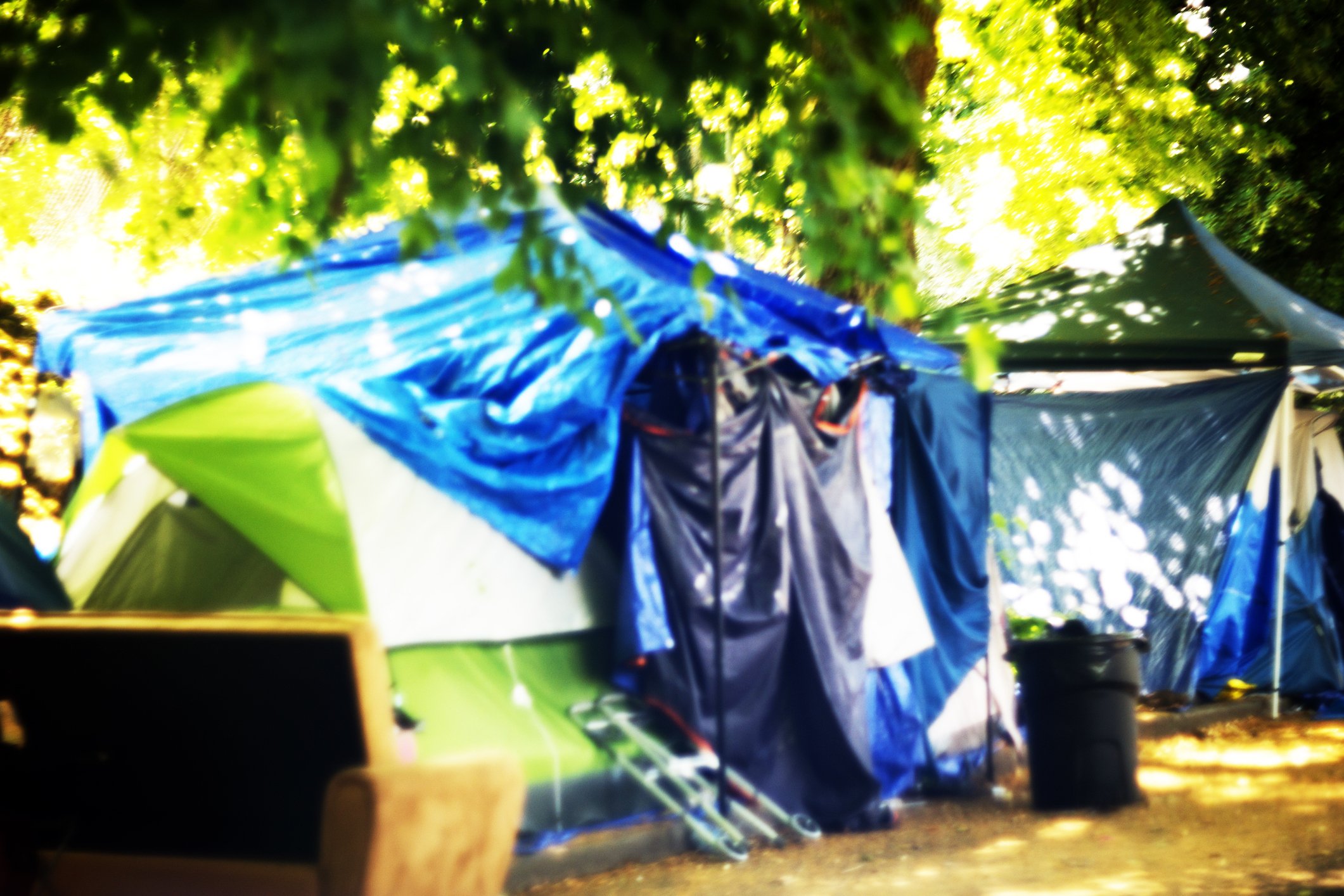A homeless Tampa army veteran has refused to sleep in a taxpayer-funded homeless shelter for veterans in his neighborhood because of how appalling the living conditions are.
An army veteran recently opted to start sleeping in his vehicle while patiently waiting for a housing voucher from the Department of Veterans Affairs. He decided it was a better option than staying at the Tampa Bay area’s largest taxpayer-funded homeless shelter.
His name is Roger Hartnett, and he can still recall the risks he took for his country during the war, including the time he parachuted into Panama in 1989 to take out dictator Manuel Noreiga.

Army Veteran Roger Hartnett wearing a green T-Shirt while holding a cup of water. | Photo: youtube.com/WFLA News Channel 8
Speaking about the matter, Hartnett revealed how unfair it was to veterans that they had to return from war to live in such terrible conditions. Hartnett said:
“It’s horrible… and I love my fellow veterans, but it’s not fair to these guys.”
The homeless shelter Hartnett is groaning about is named New Beginnings, and it was recently cited by code enforcement after complaints arose from its residents. Hartnett personally has been having issues comprehending how his fellow veterans are living.
Despite Hartnett’s grievances, Pastor Tom Atchinson, who runs the shelter, defended the establishment by referring to the infractions as “minor.” He believes the code violations all happened because they’re old buildings. Indeed, they were constructed in 1946.
Atchinson, who is well aware of the living conditions, explained that the shelter often goes through cycles where the facilities are perfectly maintained, and somewhere along the line, things simply start breaking down.
Montoya believes homeless people are those who have been beaten down so much by life that they lost hope.

A photo of a homeless encampment in city park, Oregon. | Photo: Getty Images
Hartnett is not the only person who has complained about the gross living conditions at shelters. In fact, as far back as 2017, a large percentage of homeless people started avoiding shelters to sleep on the streets; however, it wasn’t just because of inadequate facilities.
One man named Troy Montoya once revealed that he had witnessed a stabbing at one of the shelters — an occasion that left him unable to relax or sleep.
Montoya, who identified himself as an alcoholic who was at some point downing mouthwash, also suffered from PTSD, which made him extremely sensitive to loud noises and erratic behavior from strangers.
Unlike Hartnett, Montoya opted to sleep on the streets where he could be at peace without constant fear of triggering his disorder.
He seemed to believe that it took great mental fortitude to spend nights sleeping at a shelter. Perhaps this accounts for why 15 percent of homeless people are reported sleeping outside without any shelter.
Montoya believes homeless people are those who have been beaten down so much by life that they lost hope. He also thinks anyone can help such people feel better by simply acknowledging them as a person.